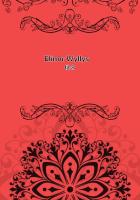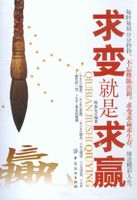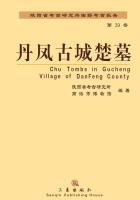New York City is not unique in its experience with political bossdom.Nearly every American city, in a greater or less degree, for longer or shorter periods, has been dominated by oligarchies.
Around Philadelphia, American sentiment has woven the memories of great events.It still remains, of all our large cities, the most "American." It has fewer aliens than any other, a larger percentage of home owners, a larger number of small tradespeople and skilled artisans--the sort of population which democracy exalts, and who in turn are presumed to be the bulwark of democracy.These good citizens, busied with the anxieties and excitements of their private concerns, discovered, in the decade following the Civil War, that their city had slipped unawares into the control of a compact oligarchy, the notorious Gas Ring.
The city government at this time was composed of thirty-two independent boards and departments, responsible to the council, but responsible to the council in name only and through the medium of a council committee.The coordinating force, the political gravitation which impelled all these diverse boards and council committees to act in unison, was the Gas Department.This department was controlled by a few designing and capable individuals under the captaincy of James McManes.They had reduced to political servitude all the employees of the department, numbering about two thousand.Then they had extended their sway over other city departments, especially the police department.Through the connivance of the police and control over the registration of voters, they soon dominated the primaries and the nominating conventions.They carried the banner of the Republican party, the dominant party in Philadelphia and in the State, under which they more easily controlled elections, for the people voted "regular." Then every one of the city's servants was made to pay to the Gas Ring money as well as obeisance.
Tradespeople who sold supplies to the city, contractors who did its work, saloon-keepers and dive-owners who wanted protection--all paid.The city's debt increased at the rate of $3,000,000 a year, without visible evidence of the application of money to the city's growing needs.
In 1883 the citizens finally aroused themselves and petitioned the legislature for a new charter.They confessed: "Philadelphia is now recognized as the worst paved and worst cleaned city in the civilized world.The water supply is so bad that during many weeks of the last winter it was not only distasteful and unwholesome for drinking, but offensive for bathing purposes.The effort to clean the streets was abandoned for months and no attempt was made to that end until some public-spirited citizens, at their own expense, cleaned a number of the principal thoroughfares....The physical condition of the sewers" is "dangerous to the health and most offensive to the comfort of our people.Public work has been done so badly that structures have to be renewed almost as soon as finished.Others have been in part constructed at enormous expense and then permitted to fall to decay without completion." This is a graphic and faithful description of the result which follows government of the Ring, for the Ring, with the people's money.The legislature in 1885granted Philadelphia a new charter, called the Bullitt Law, which went into effect in 1887, and which greatly simplified the structure of the government and centered responsibility in the mayor.It was then necessary for the Ring to control primaries and win elections in order to keep the city within its clutches.
So began in Philadelphia the practice of fraudulent registering and voting on a scale that has probably never been equaled elsewhere in America.Names taken from tombstones in the cemeteries and from the register of births found their way to the polling registers.Dogs, cats, horses, anything living or dead, with a name, served the purpose.
The exposure of these frauds was undertaken in 1900 by the Municipal League.In two wards, where the population had decreased one per cent in ten years (1890-1900), it was found that the registered voters had increased one hundred per cent.
>From one house sixty-two voters were registered, of sundry occupations as follows: "Professors, bricklayers, gentlemen, moulders, cashiers, barbers, ministers, bakers, doctors, drivers, bartenders, plumbers, clerks, cooks, merchants, stevedores, bookkeepers, waiters, florists, boilermakers, salesmen, soldiers, electricians, printers, book agents, and restaurant keepers." One hundred and twenty-two voters, according to the register, lived at another house, including nine agents, nine machinists, nine gentlemen, nine waiters, nine salesmen, four barbers, four bakers, fourteen clerks, three laborers, two bartenders, a milkman, an optician, a piano-mover, a window-cleaner, a nurse, and so on.















